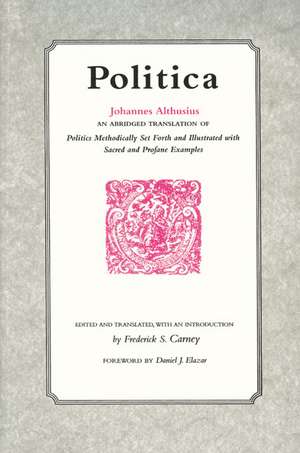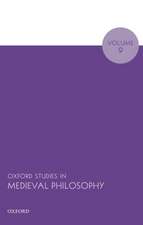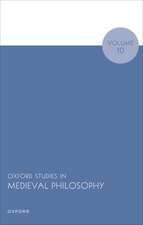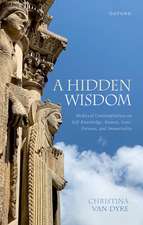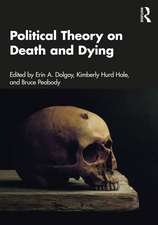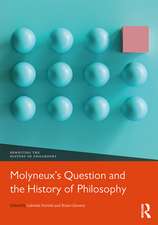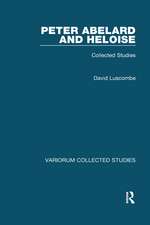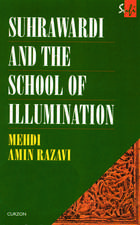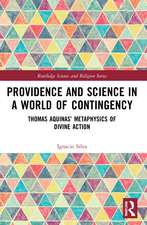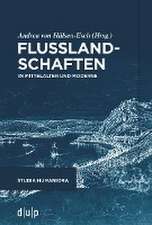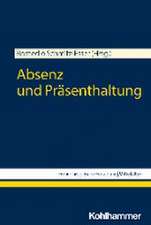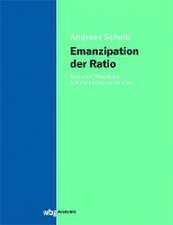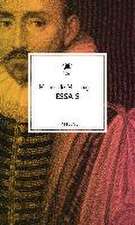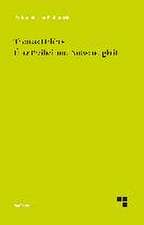POLITICA
Autor JOHANNES ALTHUSIUSen Limba Engleză Paperback – 30 mar 2010 – vârsta ani
Preț: 102.92 lei
Nou
19.69€ • 21.06$ • 16.42£
Carte disponibilă
Livrare economică 28 martie-11 aprilie
Specificații
ISBN-10: 0865971153
Pagini: 302
Ilustrații: bibliography, index
Dimensiuni: 152 x 229 x 22 mm
Greutate: 0.5 kg
Ediția:A Libertyclassi
Editura: Liberty Fund Inc.
Colecția Liberty Fund Inc.
Descriere
Althusius's "Politics Methodically Set Forth and Illustrated with Sacred and Profane Examples", known today simply as "Politica" or Althusius's "Politics", was originally published in Germany in 1603. Professor Carney's translation, which first appeared in 1964, represents the first attempt to present the basic structure of Althusius's political thought in English. "Politica" is now recognised as an extraordinary contribution to the intellectual history of the West. It combines ancient and medieval political philosophy with Reformation theory, and is considered a bridge between the political wisdom of the ancients and the moderns. Friedrich thought Althusius was the most profound political thinker between Bodin and Hobbes. Drawing deeply from Aristotle and Biblical teaching, "Politica" presents a unique vision of the commonwealth as a harmonious ordering of natural associations. According to Althusius, the purpose of the state is to protect and encourage social life. The family is the most natural of human associations, and all other unions derive from it. Power and authority properly grow from more local to more general associations. Each higher union must protect the associations that compose it, seeing to it that all of them are able to carry out the purposes for which they were established. The highest purpose of human association is devotion to God, which the state must encourage, but which properly is the province of a higher religious authority. Of particular interest to the modern reader is Althusius's theory of federalism. It does not refer merely to a division of powers between central and state governments, but to an ascending scale of authority in which higher institutions rely on the consent of local and voluntary associations.
